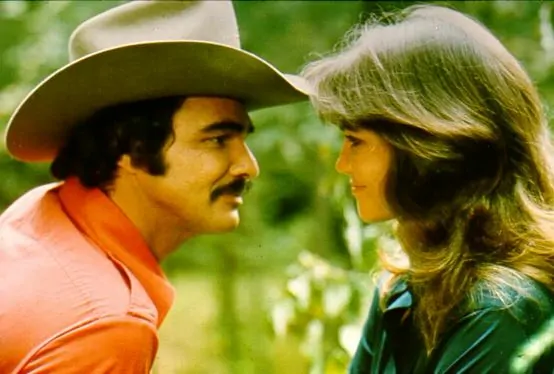Reynolds officially referred to her as such in 2015, three years before his death. He expressed regret for not making their romance, which began on the set of 1977’s Smokey and the Bandit, work, and raved about how much he missed her.
The actress’ perspective is markedly different.
“He was not someone I could be around,” she said in a new interview. “He was simply not right for me in any way.”

Field, 75, claimed Reynolds, who died of a heart attack at 82, “somehow invented in his rethinking of everything that I was more important to him than he had thought, but I wasn’t. He desired what he did not possess. I did not want to deal with it.”
Field’s memoir, In Pieces, was released on September 18, 2018, 12 days after Reynolds’ death, and it detailed their complicated relationship. She described him as dominating and abusive, and she went into detail about his drug use, stating he used Percodan, Valium, and barbiturates while working on Smokey and the Bandit.

Field and Reynolds dated on and off for five years and collaborated on four films. In retrospect, Field writes that her relationship with Reynolds was an attempt to reproduce a version of her relationship with her stepfather, Jock Mahoney, a stuntman and actor who she claimed sexually assaulted her until she was 14 in the book. “She was exorcising something that needed to be exorcised,” she explained.
Field, who had two marriages that ended in divorce, delivered a touching statement following Reynolds’ death. She did not, however, attend his funeral.
Field said she didn’t worry about writing so openly about her connection with Reynolds in her memoir, which she worked on for seven years, “because I didn’t think I was going to publish it.”
Field, who is currently working on the road trip film 80 for Brady alongside Jane Fonda, Lily Tomlin, and Rita Moreno, commented on her long career in Hollywood, calling it a job that “can kick the poop out of you.”

She rose to fame on television as Gidget in 1965, but her years as the Flying Nun (1967-1970) were disappointing, and she yearned for film parts. “It was a job,” she remarked of Flying Nun.
“And I learned to deal with adversity. It is critical to understand how to survive pleasant and unpleasant situations. I just had to put my head down, go to work, and do my best. And at these times, you understand there’s a reason you’re eating so much but attempting to disguise it. You’re trying to conceal your depression. But at the time, I couldn’t recognize what was occurring to me… or see what my dreams were.”
Field, who also appears in HBO’s Winning Time: The Rise of the Lakers Dynasty, says she “had to claw my way out of because they wouldn’t let me in a door.”And it just made me work, work, and do things I might not have done before.”
Smokey and the Bandit helped launch her career, and she went on to win two Academy Awards, first for Norma Rae in 1979 and then for Places in the Heart in 1984. Yes, she was subjected to sexual harassment along the road.
She also discussed compensation disparities. (“Because I had to make a living, I never had the luxury of saying, ‘Well, I’m going to hold out for more money. I felt like a deprived child. I’ll take anything you’ve got.”
Field also discussed her controversial Oscars speech for Places in the Heart, sometimes misquoted as “You like me. You like me” when she said, “I can’t deny the fact that you like me, right now, you like me.”
“Sometimes I want to punch them in the nose,” she said about hearing it misquoted, “but mostly because they don’t ever say the context of what I said before.”
She explained, “I say I haven’t had an orthodox career, that this has been a struggle for me, but for this moment in time, I have to allow myself to know and feel that you like me. And I could have been more articulate. I should’ve used a word like you ‘appreciated’ my work. I’m not sure what the word was.”
“To me, what mattered was for that moment in time, I did it. I did it. I landed it, and I thanked them for feeling it. A lot of people didn’t have a clue what they were talking about. They didn’t know what it was to be a performer and have your nose, ears, and legs out there to be ridiculed and criticized. They don’t know what that feels like. They’re not in the arena. They’re handing out the deodorant in the stands.”
